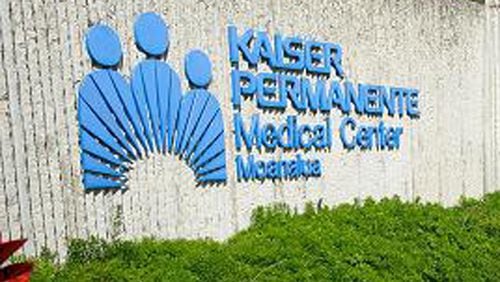Kaiser Permanente, the not-for-profit health care giant, chose Midtown Atlanta as the site of a new technology hub because it wanted to be near research universities and mass transit to help attract talent, executives said Thursday.
Officials with Oakland, Calif.-based Kaiser said it will hire 900 workers — including managers, software developers and cyber security experts — at the new complex, which will test and develop technology to help streamline care. The jobs will pay $107,000 on average, more than twice the median household income of the city.
Kaiser expects to open the center by early 2016 in an existing mid-rise office building on Peachtree Street near the Woodruff Arts Center, joining NCR and Worldpay US among recent big name projects in the area.
“We chose Atlanta very deliberately. You have so much to offer,” Kaiser Chief Information Officer Dick Daniels said. “You are a well-established technology hub, this is one of the fastest growing cities for health information technology, and you have an abundance of technology talent.”
On Thursday, the state and the board of Invest Atlanta, the city’s economic development arm, approved two grants totaling $1.5 million to aid in the Kaiser’s expansion. As a non-profit it will not qualify for state job creation tax credits.
The expansion will boost Kaiser’s local workforce to about 4,000. The company has about 280,000 customers in the state, officials said.
Kaiser said MARTA access — the Arts Center station is a few blocks away — was a key consideration. The company said it encourages workers as well as members of its health plans to be active, and the company wanted a mix of shops, restaurants and other amenities within walking distance.
Kaiser is the latest in a string of big companies putting workers near transit lines. Among the recent relocations near transit: Coca-Cola put 2,000 IT workers in a downtown office building and Mercedes-Benz and State Farm have picked locations near MARTA stations in the area of I-285 and Ga. 400.
Transit access and commuter choice have become larger priorities for companies that lose money and time as workers and products stew in traffic. The business community backed a recent effort to increase transportation funding by nearly $1 billion per year.
Though the bill passed by state lawmakers did not earmark an ongoing and dedicated funding stream for transit, city and state officials have said the debate heightened awareness about the need.
Clayton County recently joined MARTA, the system’s biggest ever expansion, and a Gwinnett Chamber of Commerce poll released Thursday found a majority of likely voters support expanding MARTA into the county.
Millennials, young people just entering adulthood up to their early 30s, will by 2020 make up about half of the nation’s workforce, according to a 2012 workplace report by the University of North Carolina business school. Many are moving to cities where they can walk to work or ride transit.
Atlanta Mayor Kasim Reed, at an announcement of Kaiser’s plans, said the General Assembly “took a bold step” in approving new transportation funds. Though votes to expand MARTA funding did not succeed, the conversation about transit is changing.
“The best thing happening around the transit conversation in our state is that it is becoming totally nonpartisan, primarily because of the emphasis of the business community,” Reed said. Business moves, Reed said, make transit “a nonpolitical conversation. It makes it a decision about whether you want to continue to have the kinds of wins we are having.”
Metro Atlanta and Georgia already have more than 200 health care IT companies, according to the Institute for Healthcare Information Technology, an industry group allied with the Metro Atlanta Chamber and state economic development department. They include major players such as athenahealth and McKesson Technology Solutions.
“We have incredible density (of companies) in cyber security and incredible density in health IT,” said Hala Moddelmog, chamber president and CEO. “And density attracts talent and it attracts other companies and I think it really was a reason (Kaiser) chose us.”
About the Author







